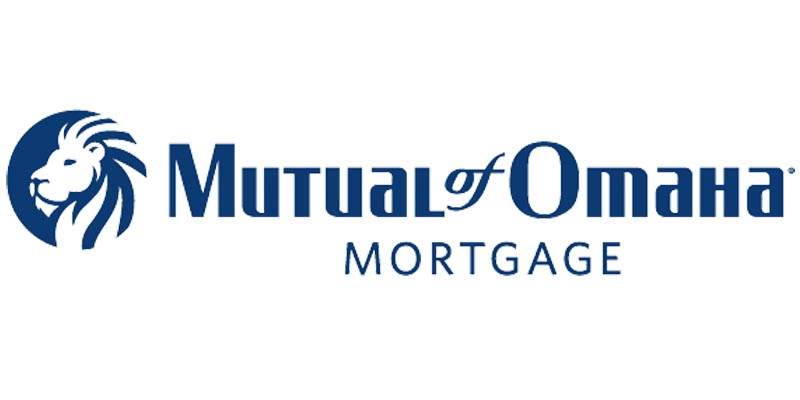Table of Content
We also reference original research from other reputable publishers where appropriate. You can learn more about the standards we follow in producing accurate, unbiased content in oureditorial policy. If your loan requires you to carry flood insurance, you must also keep up with those premiums. This is a great question – is it better to get a mortgage from a bank or mortgage company. There are benefits and short comings with any mortgage product, be it from a mortgage company, or from a bank.

Reverse mortgage borrowers must pay property taxes on their homes, just like any other homeowner with a traditional mortgage. If you're considering a reverse mortgage, be sure to talk to your reverse mortgage specialist about what will happen if you die while you still have the title to the property. The heirs of a reverse mortgage are not responsible for the loan and can retire without any obligation.
How long can you be away from your home with a reverse mortgage?
When there is a co-borrower on the loan, both you and the co-borrower receive the benefits of the loan and are responsible for meeting the obligations of the loan. If one borrower dies, the co-borrower will be able to remain in the home and receive loan payments as long as they meet the obligations of the reverse mortgage loan. A reverse mortgage is a loan available for people 62 and older so that those borrowers can use the equity in their home to accomplish a range of financial goals. Some may use it to cover bills, renovate or repair the residence, or even use it to cover lifestyle costs. They may simply want to eliminate their mortgage payment, and these products make it possible to defer that expense until the home is sold.

Real-time last sale data for U.S. stock quotes reflect trades reported through Nasdaq only. Intraday data delayed at least 15 minutes or per exchange requirements. Practically every reverse mortgage nightmare story I've heard involves only one of two spouses being on the reverse mortgage. When one passed away, the other was essentially left homeless shortly thereafter.
Can you be kicked out of your house with a reverse mortgage?
Also, a HECM borrower generally can live in a nursing home or other medical facility for up to 12 consecutive months before they have to repay the loan. Stop and check with a counselor or someone you trust before you sign anything. A reverse mortgage can be complicated and isn’t something to rush into. A maturity event is when something happens that triggers the repayment of a reverse mortgage. A home equity conversion mortgage is a type of Federal Housing Administration insured reverse mortgage. This nonprofit looks to reform reverse mortgages in the U.S. by reducing foreclosures and making the Mutual Mortgage Insurance Fund more sustainable.
In a reverse mortgage, you use your principal to apply for a loan that is repaid with the proceeds of the sale of your home. Most reverse mortgages are Home Equity Conversion Mortgages loans; HECMs are insured by the Federal Housing Administration 1 who tightly control HECM loan requirements to protect borrowers and lenders. Therefore, it is important for borrowers to understand how reverse mortgages work.
If you have heirs
Once your home is sold, the profits are distributed at closing, including the amount needed to pay the reverse mortgage. You can use it to buy another home, invest in other investments, or pay off all your debts and start fresh with a clean slate. If the sale of your property takes some time, you'll need to request another quote for the equity of your home and your final earnings at closing. Before you list your home for sale, make sure it's in good condition. Many seniors are taking advantage of the equity in their home by taking out a reverse mortgage.
If you've already taken out a reverse mortgage and think you might be at risk of running out of income, talk to your lender about how to change your repayment plan. If you move out of the house and a routine occupancy check determines that you no longer reside there, the reverse mortgage servicer will request that your loan be repaid. In general, if the income from the sale of your home is less than the amount of your reverse mortgage loan, you will be required to repay the difference. If you're thinking of selling your home with a reverse mortgage, it's important to know the schedule and follow all instructions carefully. Mortgage lenders usually have a checklist of items that must be completed before allowing the sale; some are required by law and others help avoid complications during this process. Moving is one of the events that make your reverse mortgage due and payable.
If you have a reverse mortgage and you’re thinking about moving, make sure you talk to your lender first. They may be able to work with you to find a solution that works for both of you. As with any home loan, there are some requirements involved you must meet with a reverse mortgage.

So that they can sufficiently answer all of your questions, and so you know what you have to do in order to keep your reverse mortgage in good standing. Property taxes must be paid on time to keep the loan in good standing, because if taxes go unpaid, then the taxing authority would have the right to place a lien on the home because of it. On the contrary, if the loan terms are met by the borrower, that borrower maintains ownership of the home throughout the entire course of the loan. If you presently have an existing mortgage balance on your home this info will be needed as well. Even though losing a wallet can be a big inconvenience, it’s nothing to panic about. As long as you take action quickly, you can prevent losing money and protect your personal information from potential identity thieves.
Community Rules apply to all content you upload or otherwise submit to this site. She holds a Bachelor of Science in Finance degree from Bridgewater State University and helps develop content strategies for financial brands. We are Canada’s top rated mortgage brokers based in Burnaby, BC, Canada since 2000. Another factor is the location of the property the type of dwelling on the property and the overall marketability of the property. The location of the property must be in an urban centre, it cannot be a rural property or an agricultural zoned property. It must be the applicants’ owner occupied principle residence and this can either be a single family home, an apartment style condo, a high rise condo or a town home.
In a reverse mortgage, you use your equity to take out a loan that is paid by the proceeds of the sale of your home. Because you still own your home in a reverse mortgage, there aren’t many ways to lose ownership, unless you fail to maintain three key components of maintaining your home’s legal standing. The reverse mortgage lender does not determine that though, typically a probate court would. I would suggest that the son contact an estate attorney to start the steps needed to obtain the title to the home and to let the lender know what he intends to do. The son also needs to know that he will be looking at either refinancing the loan or paying it off with other funds available to him if he wishes to keep the property since that loan is due and payable. Provisions requiring you to make these payments are in all the original documents - they are not loopholes snuck in later.
If you don’t pay your property taxes, the lender could foreclose on your home. This is why it’s so important to make sure you have a plan to cover your property tax bill each year. We’ll discuss homeownership, ways you can lose your home, and how to protect your investment while using HECM reverse mortgages . While the amount is based on your equity, you’re still borrowing the money and paying the lender a fee and interest. Your debt keeps going up because interest is added to your balance every month.
Reverse mortgage lenders never own the home, even if the loan balance exceeds the value of the property. If you’re considering a reverse mortgage, shop around and ask questions. Choosing which type of reverse mortgage is right for you might depend on what you want to do with the money. A counselor can explain the features of the three types of reverse mortgages available.




